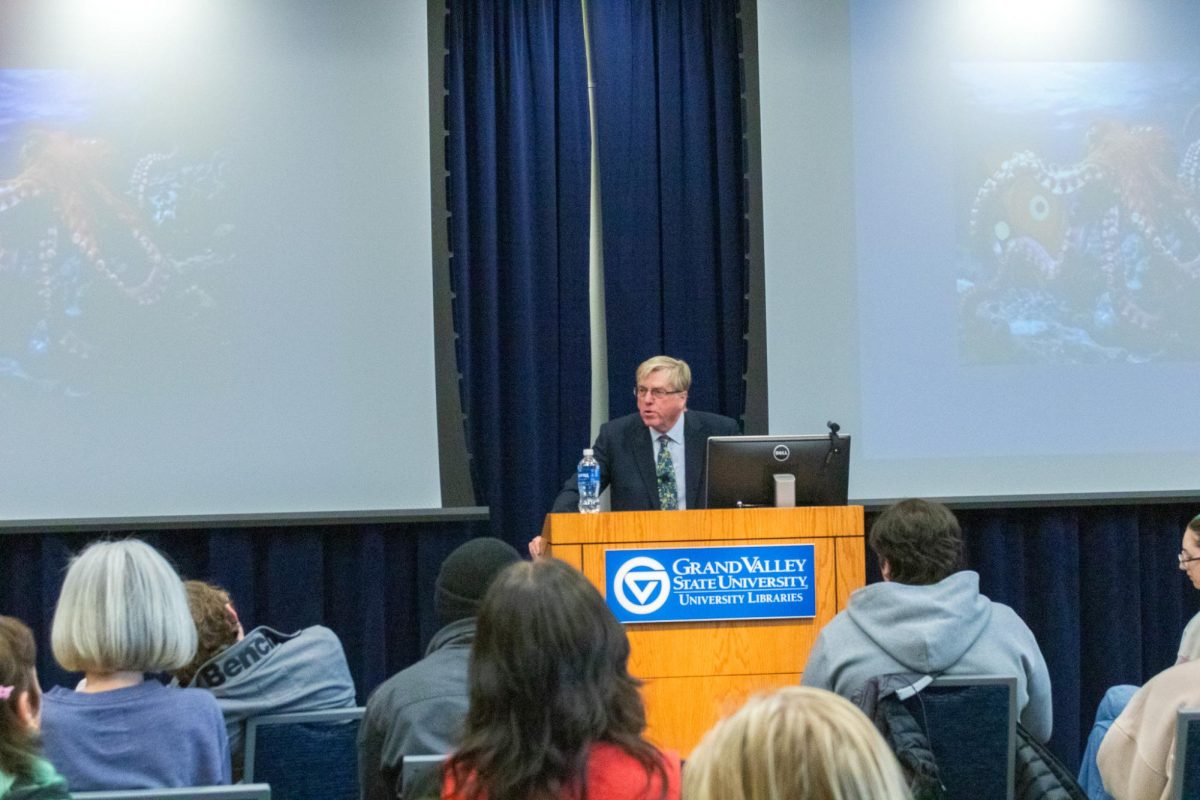Distracted driving: Michigan city bans phone use for drivers
Feb 11, 2019
Everyone knows that texting while driving isn’t a great idea, but what about using GPS while driving? Or making a quick phone call? What about switching Spotify playlists? One Michigan city has now banned the use of cell phones while driving for any reason and safety officials at Grand Valley State University agree that the ban should be universal.
Beginning Friday, Feb. 15, drivers in Battle Creek, Mich. are likely to get pulled over if they are caught using a phone while driving, regardless if the driver is actually texting or not. Drivers in violation of the new law could be issued a civil infraction and fined $100 for the first offense or $200 for the subsequent offenses.
Though common sense agrees that using mobile devices while driving is dangerous, many drivers have gotten into the habit of using smartphones behind the wheel. The National Highway Traffic and Safety Administration (NHTSA) reports that 25 percent of all car accidents (roughly 1.6 million annually) are caused by texting and driving. This habit is most common for drivers between ages 16-24, so Grand Valley Police Department recognizes the frequency of distracted driving the threat it poses to the students everywhere.
“I think it’s a great idea. With the technology we have these days, people can use hands-free or bluetooth devices instead,” said GVPD Officer Kelsey Sietsema.
“When people are looking down at their phones, accidents are bound to happen. About a month ago, we had a female on campus (a non-student) trying to find her friend by using GPS on her phone. This driver became distracted and struck a pedestrian using the crosswalk.”
Students also recognize the hazards presented when drivers try to multitask, especially in conditions that leave roads icy and slick.
“It’s probably happening for good reason,” said senior natural resource major Sabrina Fouche. “If (Battle Creek) took these drastic measures, it was probably necessary… if there’s a need for it, maybe this is how it should be.”
Senior marketing major Sam Vaughn said that though texting and driving generally isn’t safe, there may be legitimate reasons to use a phone while driving.
“Texting or talking while driving or anything of that nature can be dangerous, but I think there should be some leeway for people who are checking their GPS or changing songs really quickly. Of course though, it’s not like this ordinance will actually hurt anyone,” Vaughn said.
While some view this purely as a safety matter, Liberal Studies senior Rachael Ocampo considers what monetary gains this could mean for the areas that implement the no-phone ban.
“Any law that allows zero exceptions seems like a bad policy to me and could also come under scrutiny as a way for a city to max out their profits on unnecessary fines. Michigan’s current distracted driving law does a good job outlining when it is permissible to use your phone while driving and when it is not—I think the city should stick to those guidelines,” Ocampo said.
Michigan’s statewide guidelines on distracted driving make exceptions for using the devices for GPS tools or to report a crime, accident or road hazard. As it stands now, there are few restrictions to talking on the phone while driving, whereas reading or writing text messages behind the wheel is illegal.
It is unclear now whether more Michigan communities will apply the no-phone ban, but it’s likely that traffic data provided by the Battle Creek city commission over the next few years could influence whether or not this ordinance will be adapted elsewhere.






















